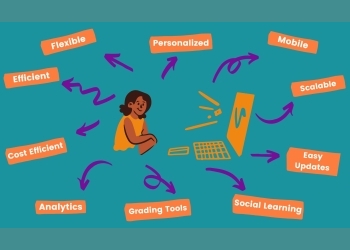
Facebook has changed the way people do a lot of things online. For example, you probably notice yourself reflexively clicking “like” on anything your friends post on Facebook, even if it's just to acknowledge you saw it. Scammers are taking advantage of that reflex for a dangerous scam called "like-farming."
What is like-farming?
Like-farming is when scammers post an attention-grabbing story on Facebook for the express purpose of cultivating likes and shares. Based on the way Facebook works, the more likes and shares a post has, the more likely it is to show up in people's News Feeds.
Like farming works because the average Facebook user doesn't know any better. They think, "What does it hurt to simply like something?" But, it can hurt you personally, and others. These posts and pages are often used to spread malware, or as a phishing scam to collect your personal information. That information is then used for further scams and can be
sold on the black market. It's a way for scammers to work around Facebook's algorithm, and put malicious code in front of more people.
This gives the scammer more eyeballs for posts that send people to malicious downloads or trick them into providing information. The big question, of course, is why Facebook doesn't stop these posts before they get too big. And that's where the real scam comes in.
How the scam works
Scammers have found a simple way to fly under the radar during the early phases of their operation. The story they originally post to Facebook has nothing dangerous about it. It's just a regular story that anyone might post.
Only after the post gets a certain number of likes and shares does the scammer edit it and add something malicious. In fact, if you go back through your history of liked posts, you might find that some of them have changed to something you wouldn't have liked in a million years. By the way, if you’re not sure how to review your likes, click here for the step-by-step instructions.
So, what kinds of stories do scammers start with to trick people into liking and sharing?
Posts that should give you pause
One popular type of story is the emotional one. You've definitely seen the posts that show rescue animals and ask you to like if you think they're cute. Or maybe it's a medical story where you're asked to like that the person was cured or to let them know they're still beautiful after surgery.
There are also the posts that ask for a like to show that you're against something the government is doing, or that you disagree with something terrible happening in the world. Or maybe it's the ones that say "If I get X number of likes, then something amazing will happen for me" or "I was challenged to get X number of likes."
Basically, any post that asks you to like it for emotional reasons, unless you know the person who created the original post, is quite probably a like-farming post.
Other types of scam posts to avoid
Emotional posts aren't the only ones you need to watch for. There are a lot of scams on Facebook, and most of them can be used for like-farming. A popular one, for example, asks you to like or share so you can win something cool. These pop up most often when Apple launches a new iPhone or iPad.
You might have seen people posting on Facebook during the recent Powerball frenzy that anyone who liked their post would get a share of their winnings. How real do you think those were?
What about brain-teaser posts, such as the ones that have you like or share if you can read the words backwards or solve a tricky math problem? Yep, those are often like-farming posts, too.
And it isn't just posts; it can also be pages. A scammer might set up a page for "I love puppies" or what appears to be a worthy company or organization. It puts up enough content to get a lot of likes, then switches the content to spam and scams. Once you've liked the page, everything new the scammers put up goes on your News Feed – and in some cases your friends' feeds as well.
How to avoid like-farming
Your best bet to avoid like-farming is to be very judicious about what you like and share on Facebook. Don't just reflexively click "like" on everything. Take a look at where the post is coming from. If it's from someone you don't recognize, it could be a friend of a friend or it could be a complete stranger. It would be good to find out.
Notice the content and whether it promises anything for liking or sharing. If it does, it's a good clue that it's a scam of some kind. The same goes if you feel pushed or pressured into clicking like or share.
Don't forget that, in the end, minimizing your likes is more than just a good security measure. It also reduces the clutter in your friends' news feeds, and their clutter in yours, so you can all spend more time seeing the really important posts. That's a win-win for everyone.
Finally, there is one like button you should press to get news and updates to stay ahead of the game. Head over to my Facebook page and like me at Facebook.com/Howwe.biz.
More on Fox: Click here for 5 Facebook scams that continue to spread like wildfire.













